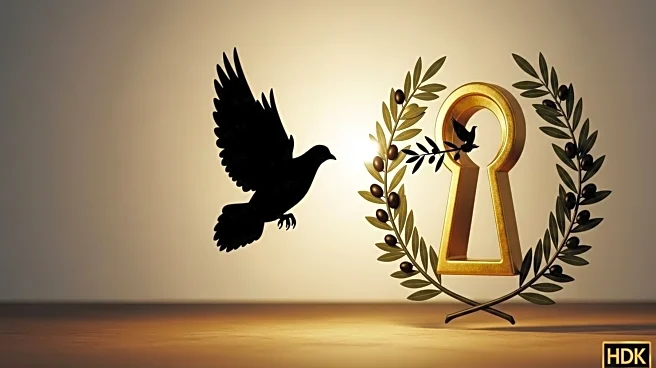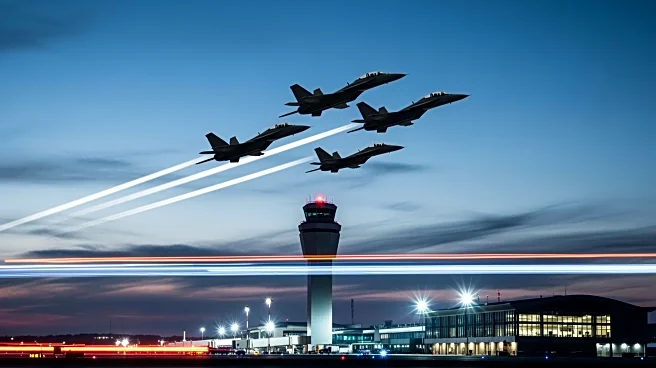What is the story about?
What's Happening?
Israel's security cabinet has approved a cease-fire and hostage release agreement with Hamas, effectively ending the war in Gaza after two years of conflict. The decision was reached after more than six hours of deliberation, with the cabinet working late into the night to finalize the details. The cease-fire is set to formally take effect 24 hours after the agreement's approval, with Hamas required to return all Israeli hostages within 72 hours. The Israel Defense Forces will begin to pull back to agreed-upon lines in Gaza, and Hamas will release the remaining hostages early next week. The peace plan, unveiled by President Trump, has been under negotiation since Monday, with the final agreement reached on Wednesday night.
Why It's Important?
The approval of the cease-fire and hostage release agreement marks a significant step towards peace in the region, potentially ending a prolonged conflict that has affected countless lives. The deal involves the release of hundreds of Palestinian prisoners, some of whom were involved in the initial attack that sparked the war. This agreement, facilitated by international cooperation led by President Trump, could pave the way for further diplomatic efforts and stability in the Middle East. The successful negotiation highlights the importance of international pressure and collaboration in resolving complex geopolitical issues.
What's Next?
Following the agreement, Israel will begin the process of withdrawing its forces from Gaza, while Hamas is expected to release the hostages. The next few days will be crucial in ensuring the smooth implementation of the cease-fire and the safe return of hostages. The international community will likely monitor the situation closely, with potential reactions from various stakeholders, including political leaders and civil society groups. The agreement could also lead to further negotiations aimed at achieving long-term peace and security in the region.
Beyond the Headlines
The agreement raises ethical and legal questions regarding the release of prisoners involved in violent acts. It also highlights the role of international diplomacy in conflict resolution, emphasizing the need for continued efforts to address underlying issues in the region. The deal could trigger long-term shifts in regional dynamics, potentially influencing future peace negotiations and alliances.















